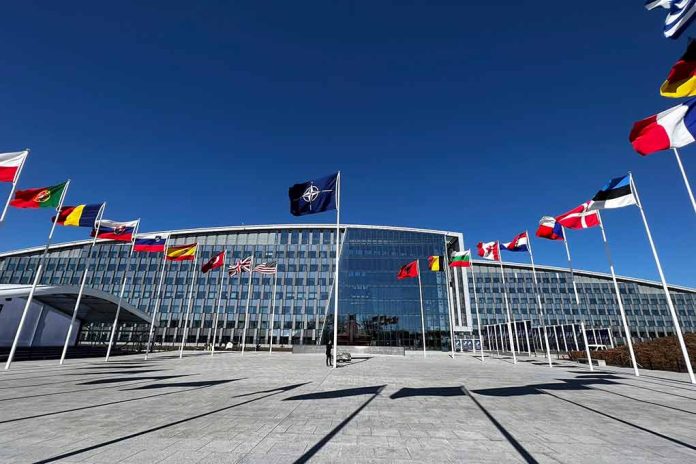
In a desperate political gamble, Polish Prime Minister Donald Tusk calls for a confidence vote after the stunning victory of Trump-admiring nationalist Karol Nawrocki in Poland’s presidential election, threatening to derail Tusk’s pro-EU agenda.
Key Takeaways
- Polish PM Donald Tusk is seeking a parliamentary confidence vote to reinforce his pro-EU government after nationalist Karol Nawrocki won the presidency with 51% of the vote.
- Nawrocki, who admires President Trump, defeated pro-EU liberal Rafal Trzaskowski in a narrow election that signals rising nationalist sentiment in Poland.
- Law and Justice (PiS) party leader Jaroslaw Kaczynski described the election as a “red card” for Tusk’s government and called for its replacement.
- Tusk’s confidence vote aims to shore up unity within his coalition, which has shown internal divisions that could be exacerbated by Nawrocki’s victory.
- Political analysts warn that growing tensions could potentially lead to the government’s collapse and early elections before the scheduled 2027 vote.
Nationalist Victory Shakes Poland’s Political Landscape
The political landscape in Poland faces significant turbulence as Prime Minister Donald Tusk announced he will seek a parliamentary confidence vote following nationalist Karol Nawrocki’s victory in the presidential election. Nawrocki, who has expressed admiration for President Trump, secured the presidency with 51% of the vote against pro-EU liberal Rafal Trzaskowski’s 49%. This razor-thin margin reveals the deep political divisions within Poland and poses a serious challenge to Tusk’s pro-European agenda that has been central to his governance since taking office in 2023.
The election outcome represents a significant setback for Tusk’s coalition, which has positioned itself as a bulwark against the nationalist policies of the previous Law and Justice (PiS) government. Despite holding a parliamentary majority since the 2023 elections, Tusk’s administration now faces potential gridlock as the president-elect could use his veto power to block legislation. This dynamic threatens to undermine Poland’s position within the European Union and complicate its relationships with Western allies at a time when regional stability is already threatened by ongoing conflicts.
Tusk’s Confidence Vote: Strategic Move or Political Necessity?
In response to the election upset, Tusk quickly announced his intention to call for a vote of confidence in parliament. “As prime minister, I will not stop for a moment my work and our common struggle for the Poland of our dreams… free, sovereign, safe and prosperous,” Donald Tusk declared, emphasizing his commitment to continue his pro-European agenda despite the electoral setback.
The confidence vote appears designed to accomplish several objectives simultaneously: reassert Tusk’s authority, quell internal dissent within his coalition, and demonstrate to both domestic and international audiences that his government maintains functional power despite the presidential defeat. While analysts suggest that Tusk’s coalition does not appear at immediate risk of collapse, the vote represents a preemptive measure to reinforce unity and prevent the emergence of more serious fractures that could eventually lead to early elections well before the scheduled 2027 vote.
Growing Opposition Calls for Government Change
The opposition has wasted no time capitalizing on Nawrocki’s victory, with PiS leader Jaroslaw Kaczynski describing the election result as a “red card” for Tusk’s government. Kaczynski has called for the installation of a non-partisan expert government, signaling that the opposition views the presidential election as a mandate to challenge Tusk’s authority more aggressively. This rhetoric intensifies the already heated political climate and suggests that cooperation between the new president and Tusk’s government may be difficult to achieve.
“Polish Prime Minister Donald Tusk said he’ll seek a vote of confidence to shore up support for his coalition government after a candidate backed by his party was defeated in Sunday’s presidential election,” Donald Tusk stated, acknowledging the political challenge ahead while attempting to project stability.
The emerging political configuration in Poland reflects a broader European trend where nationalist movements have gained ground against establishment pro-EU parties. President Trump’s influence on global conservative politics is evident in Nawrocki’s approach, which emphasizes national sovereignty and skepticism toward certain EU policies. This ideological shift could significantly impact Poland’s position on key issues including immigration, climate policy, and support for Ukraine, potentially creating new points of tension with Brussels and other Western European capitals.
Implications for Poland’s European Position
The presidential election results and subsequent political maneuvering carry significant implications for Poland’s position within the European Union. Tusk has positioned himself as a staunch defender of European unity and has worked to repair relationships with EU partners that were strained during the previous PiS government. A fragmented domestic political scene could undermine these efforts and potentially revive conflicts with EU institutions over issues of rule of law, judicial independence, and adherence to European values.
Moreover, Poland’s crucial role as a frontline NATO state bordering both Ukraine and Belarus makes its political stability a matter of strategic importance. The country has been one of Ukraine’s most vocal supporters and has played a pivotal role in coordinating Western assistance. Any significant shift in Poland’s foreign policy orientation could have repercussions for regional security arrangements and the broader Western response to Russian aggression. The confidence vote, therefore, represents not just a domestic political exercise but a statement about Poland’s continued commitment to its current geopolitical alignment.







